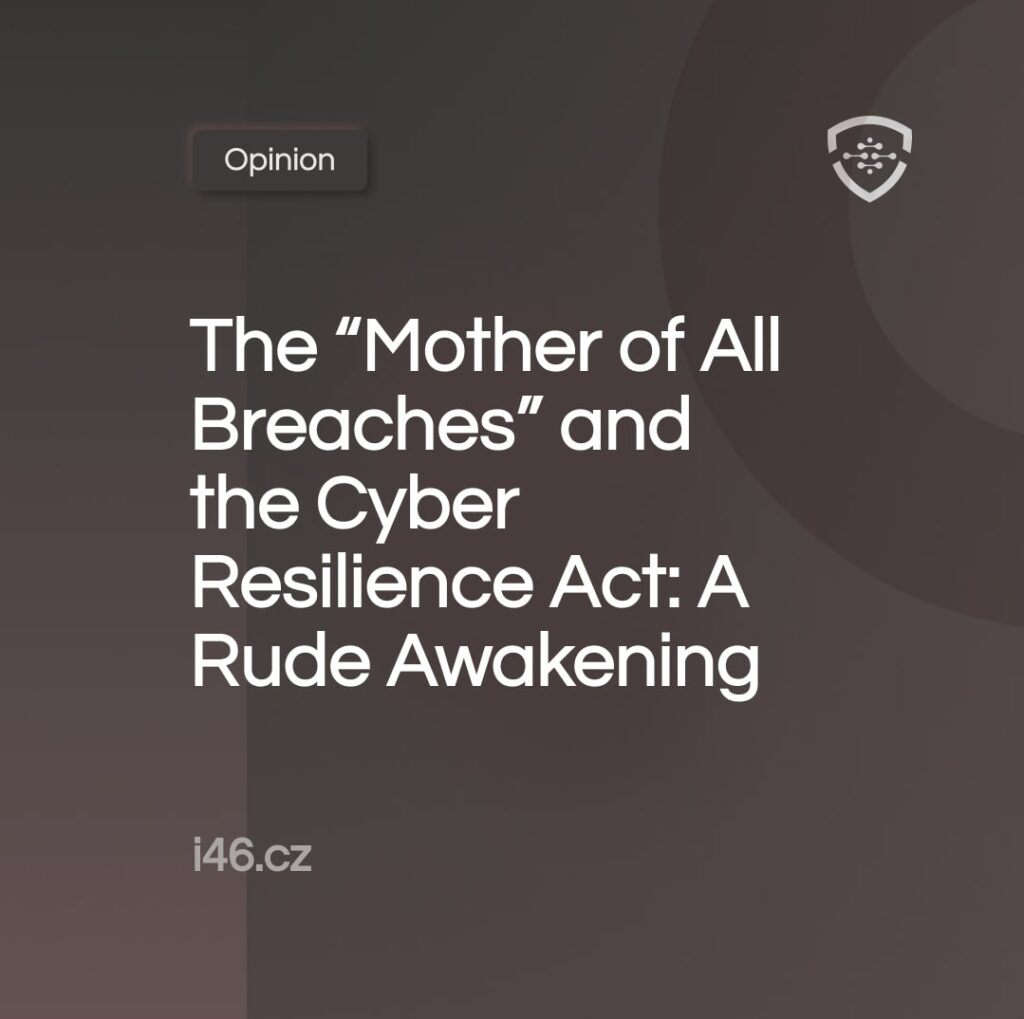The "Mother of All Breaches" and the Cyber Resilience Act: A Rude Awakening
Updated on: January 30, 2024 02:08 PM

The ink barely dries on the headlines. The aptly named “Mother of All Breaches” – the theft of a staggering 26 billion data records from social media giants like Twitter and LinkedIn – first reported by CyberNews has sent shockwaves through the online world, leaving countless individuals exposed and vulnerable.
This monumental revelation serves as a stark reminder of the precarious state of our digital security and the dire need for robust cyber defenses.
In this context, the Cyber Resilience Act, once met with skepticism and criticism, suddenly feels less like an overreaction and more like a long-overdue necessity.
Why the Cyber Resilience Act Matters Now More Than Ever
Critics of the Act argued it placed undue burdens on businesses, stifled innovation, and offered little tangible protection against sophisticated cyberattacks.
Yet, in the face of this unprecedented breach, those arguments ring hollow. The scale of the “Mother of All Breaches”, which includes records from previously revealed breaches, and new ones unknown until now, demonstrates that even the most secure platforms (e.g: records from Linkedin and Twitter are included in the breach) are not infallible.
The Act’s core principles – mandating incident reporting, risk management plans, and stricter data protection measures – would have, provided that the platforms were informed of the breach, alerted users and authorities sooner and potentially mitigated the damage.
While foolproof prevention might be a utopia, proactive measures significantly reduce the attack surface and buy precious time for response.
Beyond Headlines: The Human Cost of Data Breaches
The consequences of data theft extend far beyond mere statistics. Exposed personal information – from social security numbers to financial data – puts millions at risk of identity theft, financial fraud, and even physical harm. The psychological toll of knowing your privacy has been violated can be immense, eroding trust and fostering anxiety.
The Act could help mitigate these human costs. By forcing companies to prioritize data security and invest in robust defenses, it would hold them accountable for protecting the sensitive information entrusted to them. This, in turn, would foster a culture of cyber hygiene and shared responsibility that benefits everyone.
A Watershed Moment: Time to Embrace Cyber Resilience
The “Mother of All Breaches” is not just another headline; it’s a watershed moment demanding a reckoning in our approach to cybersecurity. We can no longer afford to dismiss cyber threats as distant possibilities or accept data breaches as an inevitable cost of doing business.
The Cyber Resilience Act, too often seen as an inconvenience, now emerges as a crucial step towards building a more secure digital future. It’s time to move beyond skepticism and embrace its provisions as a necessary investment in protecting our privacy, our finances, and ultimately, our peace of mind.
Takeaway: Building a Resilient Future, One Byte at a Time
The “Mother of All Breaches” is a wake-up call, a stark reminder of our collective vulnerability and the urgent need for action. Embracing the Cyber Resilience Act is not just about complying with regulations; it’s about building a digital ecosystem where trust and security prevail.
By prioritizing cyber resilience, one byte at a time, we can build a future where the internet empowers, not exposes, and where the “Mother of All Breaches” remains a chilling anomaly.
Checking if your data has been leaked
You can check if your data was exposed in historic data breaches using a tool created by Cybernews: the data leak checker.
The Cybernews team is currently working on updating the tool and provide you with means to check if your data was exposed in the “Mother of All Breaches”.
Join the Discussion:
Chat with i46’s CEO: Erel Rosenberg
Find out more information on the Cyber Resilience Act here



